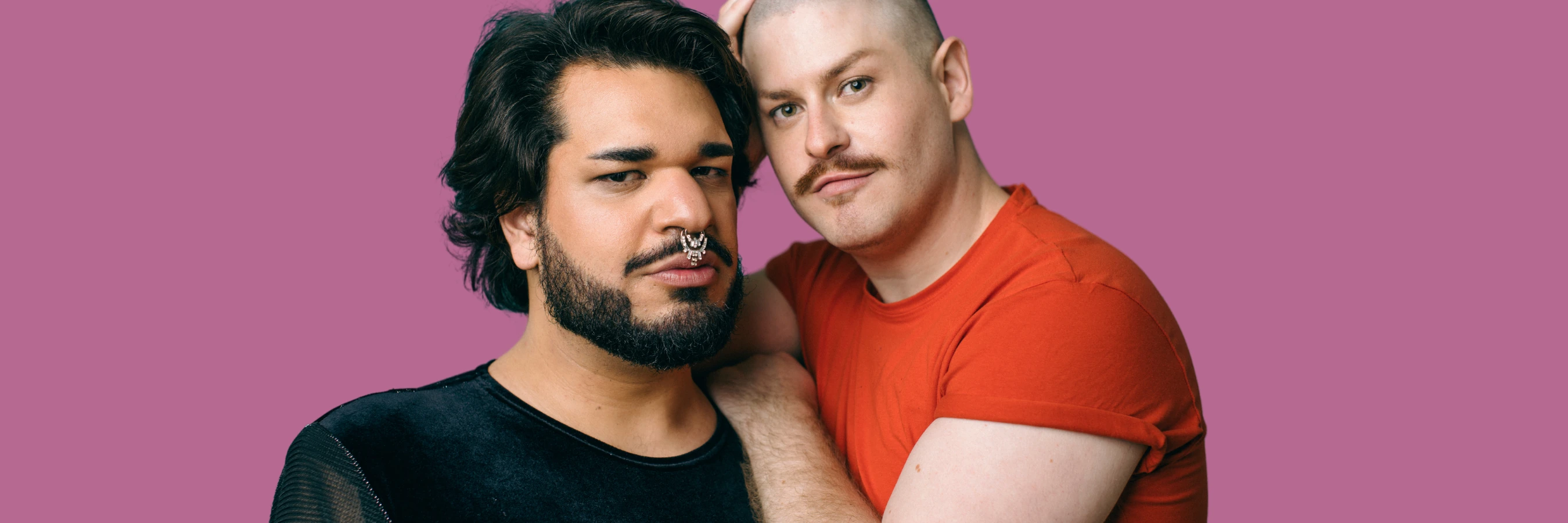Fertility Options for Same-Sex Male Couples & AMAB Individuals
At Care Fertility, we believe every individual deserves the opportunity to build a family. With years of experience supporting same-sex male couples and individuals assigned male at birth (AMAB), we offer compassionate care and specialised fertility treatments tailored to your unique journey to parenthood.
This page focuses on surrogacy as the primary pathway for same-sex male couples and AMAB individuals aiming to start a family. From understanding the surrogacy process to selecting egg and sperm donors, we provide comprehensive information and support to help you make informed decisions.
What is surrogacy?
Surrogacy is a method of assisted reproduction where a woman carries and delivers a baby for another person or couple, often referred to as the intended parents (IPs). This arrangement is invaluable for couples unable to carry a pregnancy themselves, providing a pathway to biological parenthood.
Surrogacy involves a legal and emotional commitment between the surrogate and the IPs, supported by medical professionals to ensure a successful and positive experience. At Care Fertility, we guide you through the complexities of surrogacy with compassion and expertise, ensuring you feel supported at every step.
Types of surrogacy
Care Fertility offers both straight (traditional) and host (gestational) surrogacy options to accommodate the diverse needs of our same-sex male couples and AMAB individuals:
Straight Surrogacy
Also known as genetic or traditional surrogacy, this method involves the surrogate using her own eggs and being artificially inseminated with the sperm of one of the intended parents (IPs). As a result, the surrogate has a genetic connection to the baby.
Host Surrogacy
Also known as gestational surrogacy, this method involves the creation of embryos using either the eggs of a donor or one of the intended parents, combined with sperm from a donor or another intended parent. The embryo is then transferred to the surrogate's uterus for gestation. In host surrogacy, the surrogate has no genetic relationship to the baby.
Understanding these options allows you to choose the surrogacy path that aligns best with your family-building goals and preferences.
Choosing an egg donor
Selecting an egg donor is a big decision for same-sex male couples and AMAB individuals thinking of using surrogacy. Care Fertility offers a curated selection process to help you find an egg donor who meets your preferences and genetic criteria:
Personalised matching: Our fertility specialists assist you in finding an egg donor whose physical attributes, medical history, and personal characteristics align with your family's needs.
Genetic screening: All egg donors undergo rigorous screening for genetic diseases and overall health to ensure the highest quality of donor eggs.
Choosing an egg donor is a collaborative process, and our team provides guidance and support to help you confidently navigate this important step.
Choosing a sperm donor
When selecting a sperm donor, Care Fertility offers a comprehensive selection process designed to meet your specific preferences and requirements:
Genetic compatibility: Our database includes sperm donors who undergo thorough genetic screening to ensure they meet high medical standards.
Personal characteristics: You can choose a sperm donor based on physical attributes, educational background, interests, and other personal traits important to you.
Our fertility specialists are available to discuss your options and provide support throughout the selection process, ensuring you feel confident in your choice of sperm donor.
How to find a surrogate
Finding the right surrogate is another important step in the surrogacy journey. Care Fertility provides dedicated surrogacy coordinators who offer guidance and support throughout this process:
If you have already identified a surrogate, contact us to initiate the necessary medical and legal assessments.
For those still searching, we collaborate with reputable surrogacy agencies in the UK, known for their expertise in matching IPs with suitable surrogates. These agencies have a proven track record of helping same-sex male couples and AMAB individuals navigate the complexities of surrogacy.
Additionally, if you are using donor eggs, we facilitate the creation of embryos while you search for your surrogate, ensuring readiness for the next steps in your fertility treatment.
IVF Treatment for surrogacy
Once embryos are created using donor eggs and sperm from one of the IPs, or both, the next step is IVF treatment. Our experienced clinical team oversees the embryo transfer process, providing detailed information and support to ensure optimal conditions for pregnancy:
Embryo Creation: Our fertility specialists manage the process of fertilising eggs with sperm to create viable embryos.
Embryo Preservation: For IPs still in search of a surrogate, embryos can be cryopreserved (frozen) until the ideal time for transfer.
This approach allows flexibility in planning and pacing your journey to parenthood, supported by our commitment to your emotional and medical well-being.
Cost of fertility treatment
Understanding the financial aspects of fertility treatment is essential. For detailed information on costs, read our guide to IVF costs, or book a consultation to discuss your options. We understand that cost is an important consideration, and we offer various packages and financing options to make treatment more accessible.
Our free upcoming events
We understand that you are likely to have lots of questions when considering fertility treatment, which is why we hold regular online fertility information events to give you all the information you need about Care Fertility and how we can help you.
More events coming soon, check out our previous events here.
LGBTQ+ patient stories
Hearing from others who have walked the same path can be incredibly reassuring. We share stories from our LGBTQ+ patients to inspire and support you on your journey to parenthood.
Frequently Asked Questions
How much does surrogacy cost?
Can I choose the eggs and sperm with Care Fertility?
How does Care Fertility support people and couples through this journey?
Do Care Fertility support trans and non-binary individuals and couples?
Legal considerations for surrogacy
It is important for LGBTQ+ couples and individuals understand the legal aspects of their treatment. In particular, surrogacy agreements are not enforceable in law and the surrogate and spouse or civil partner (if there is one) will be the legal parent of a child until a parental order is granted. At Care Fertility we will only provide treatment where we are assured that the intended parents will – subject to the surrogate’s consent – be able to get a parental order.
For same-sex couples who are considering shared motherhood, there may be questions around adoption, to ensure that both parents are legally acknowledged.
Surrogacy and adoption are particularly complex areas of family law and while we cannot recommend legal advisers, we have listed below a number of advisers who we believe have the relevant experience. There is no obligation for you to seek advice from any of these firms of course.
Livingstons
Laytons LLP
NGA Law
Makin Dixon
JMW Solicitors
Family Law Group
Ready to begin your journey to parenthood?
Take the first step on the path to parenthood by booking a consultation with one of our fertility experts.
Transparency in our language
"In our content, we use terms like 'same-sex male couples,' 'AMAB individuals,' 'sperm donor', and ‘egg donor’ to be inclusive of diverse sexual orientations and gender identities. We are committed to respecting and acknowledging the diversity within our community. If there are alternative terms you prefer or feel more comfortable with, please let us know."





